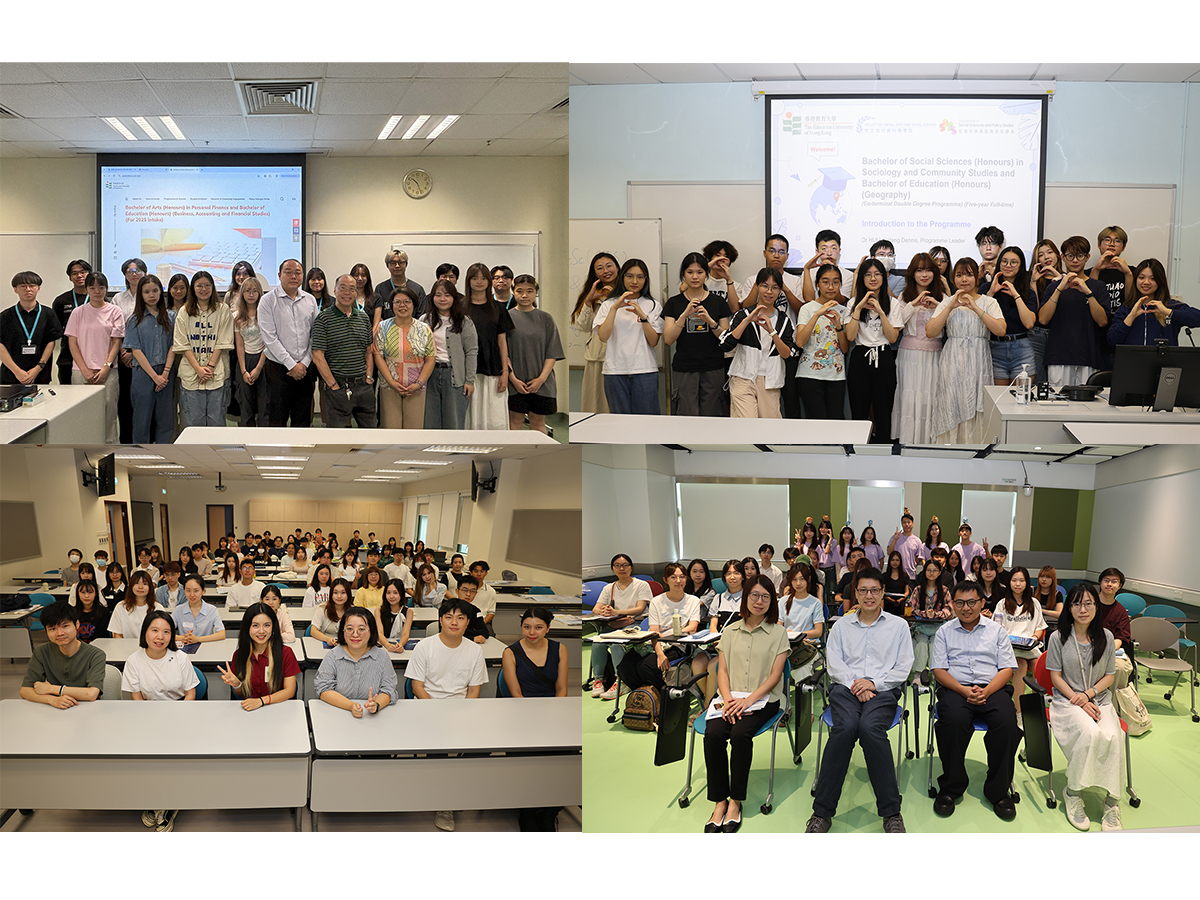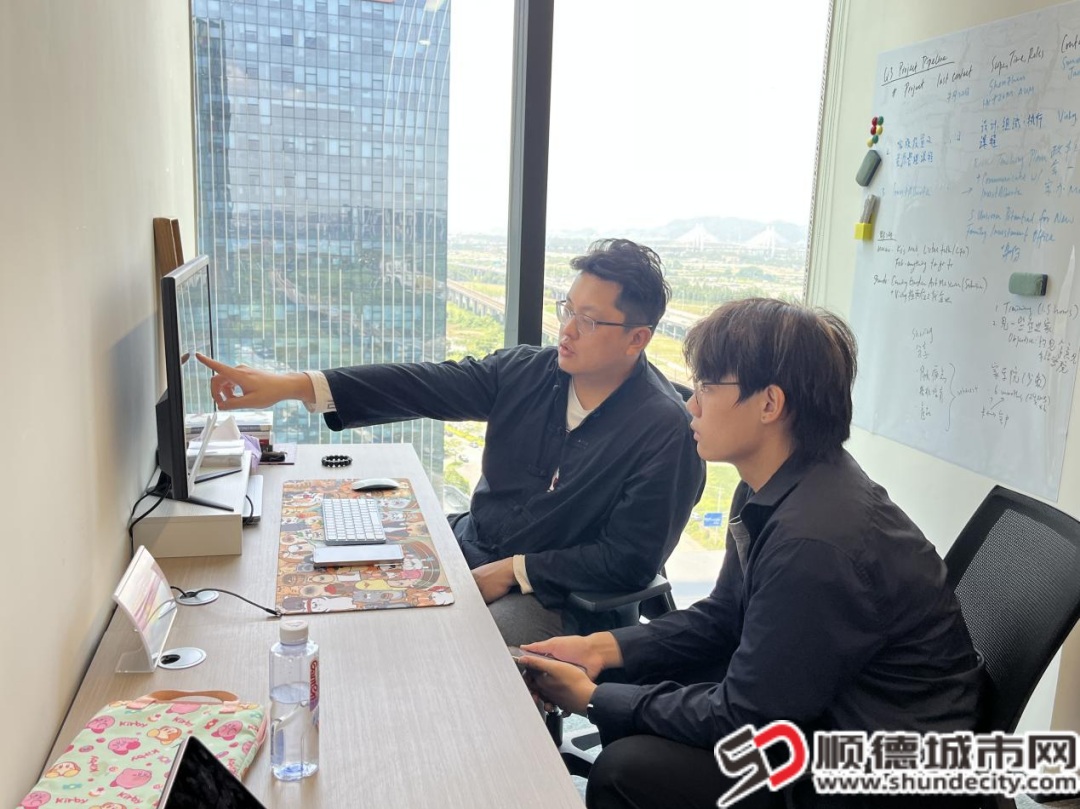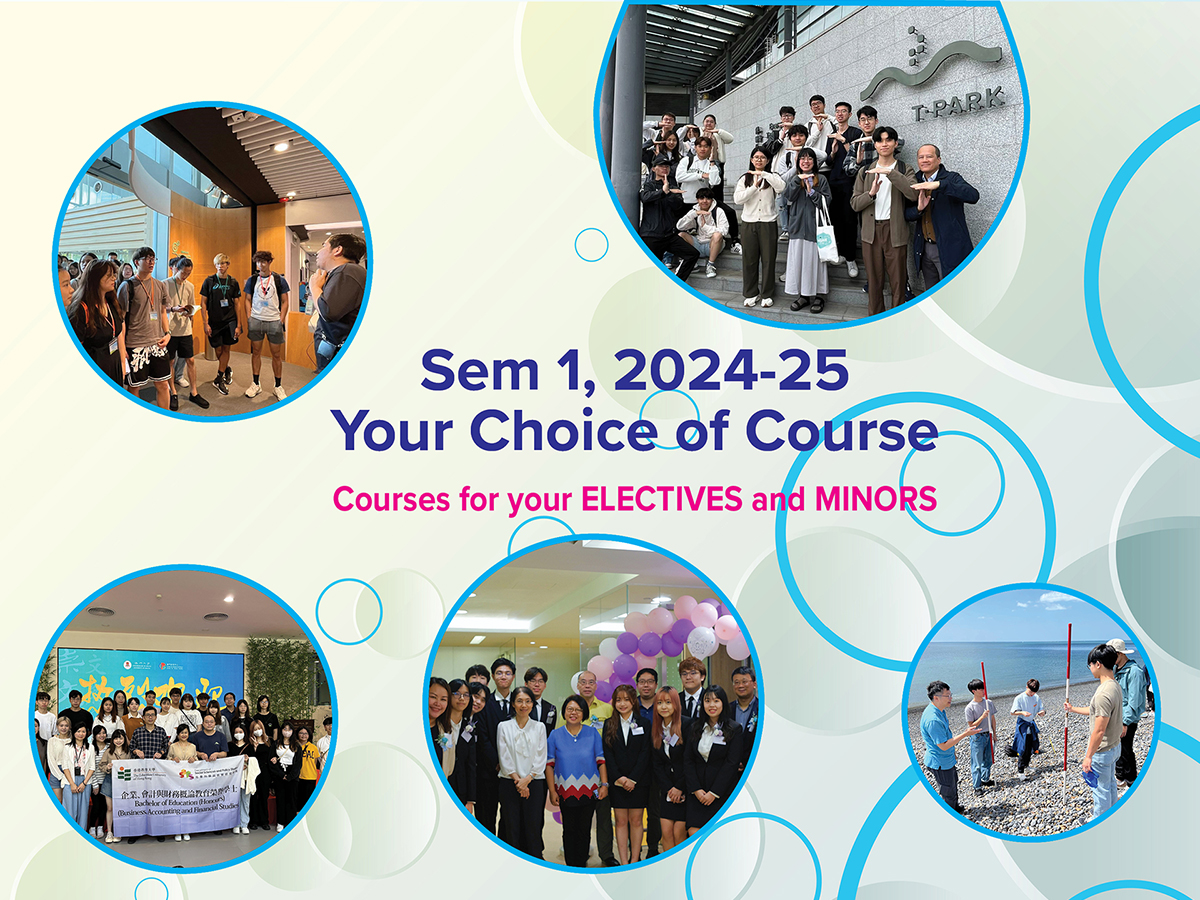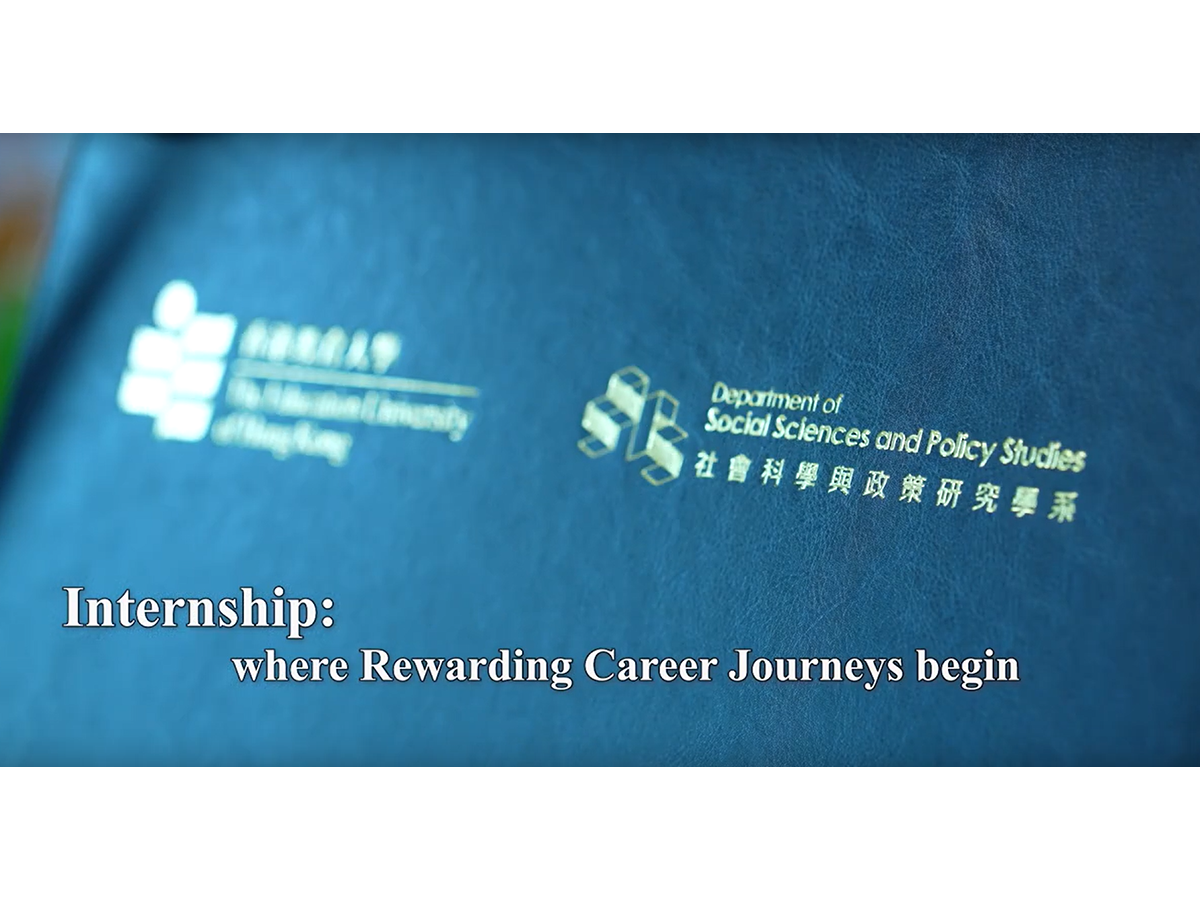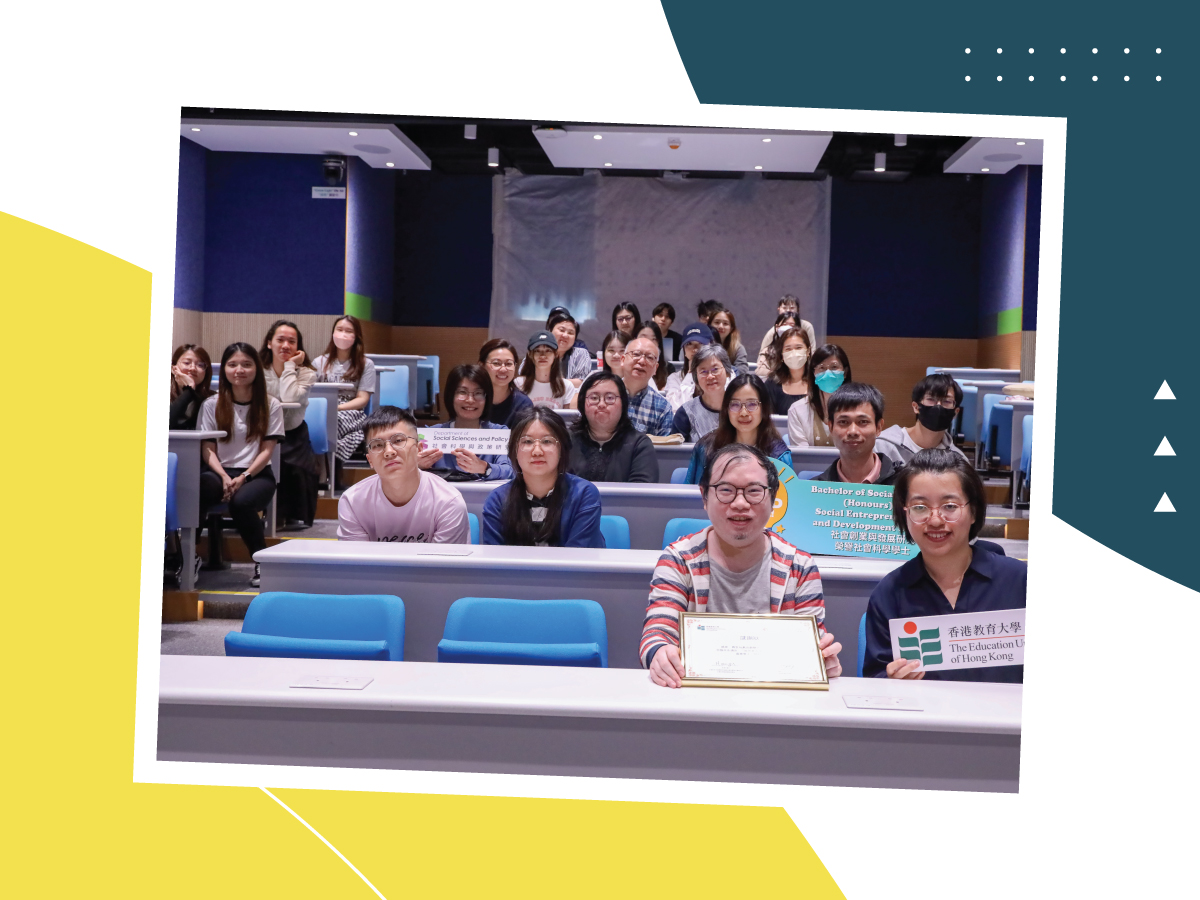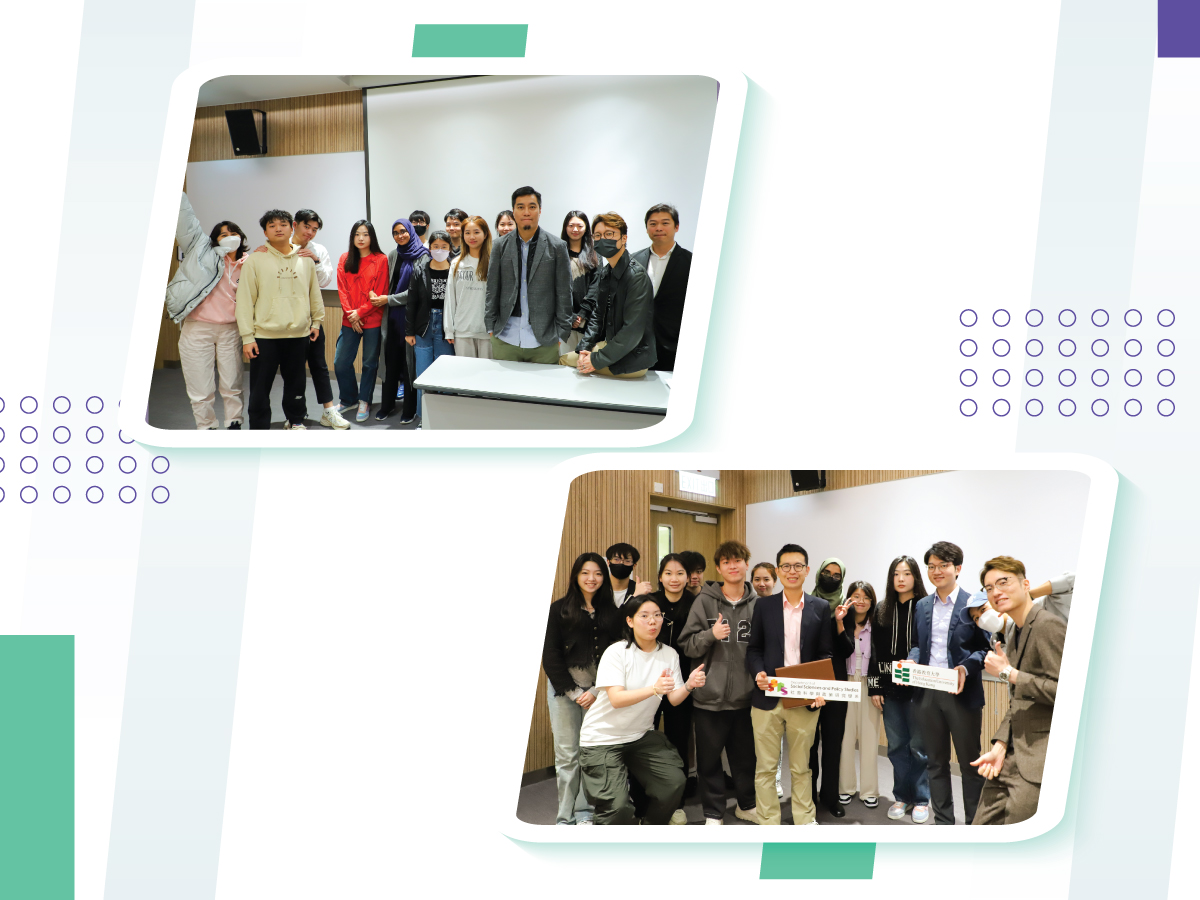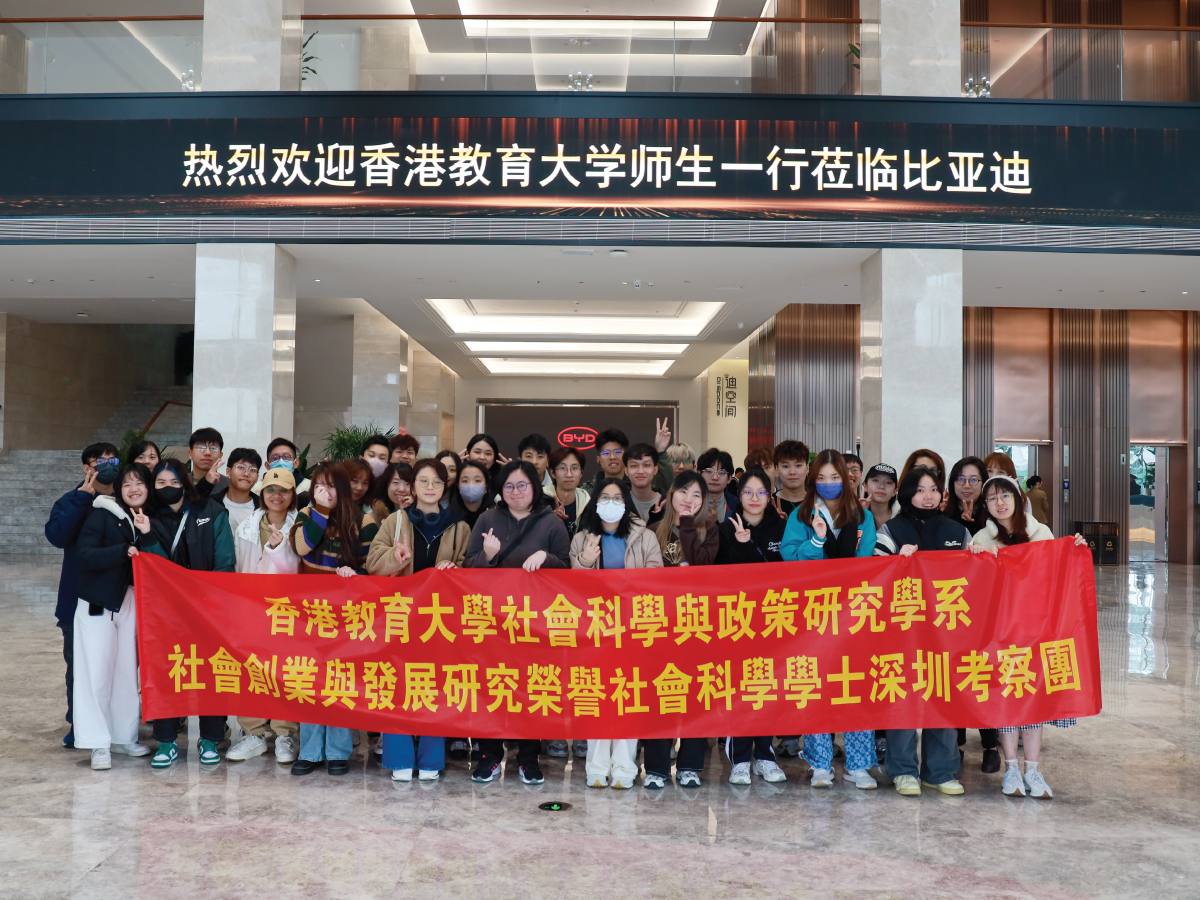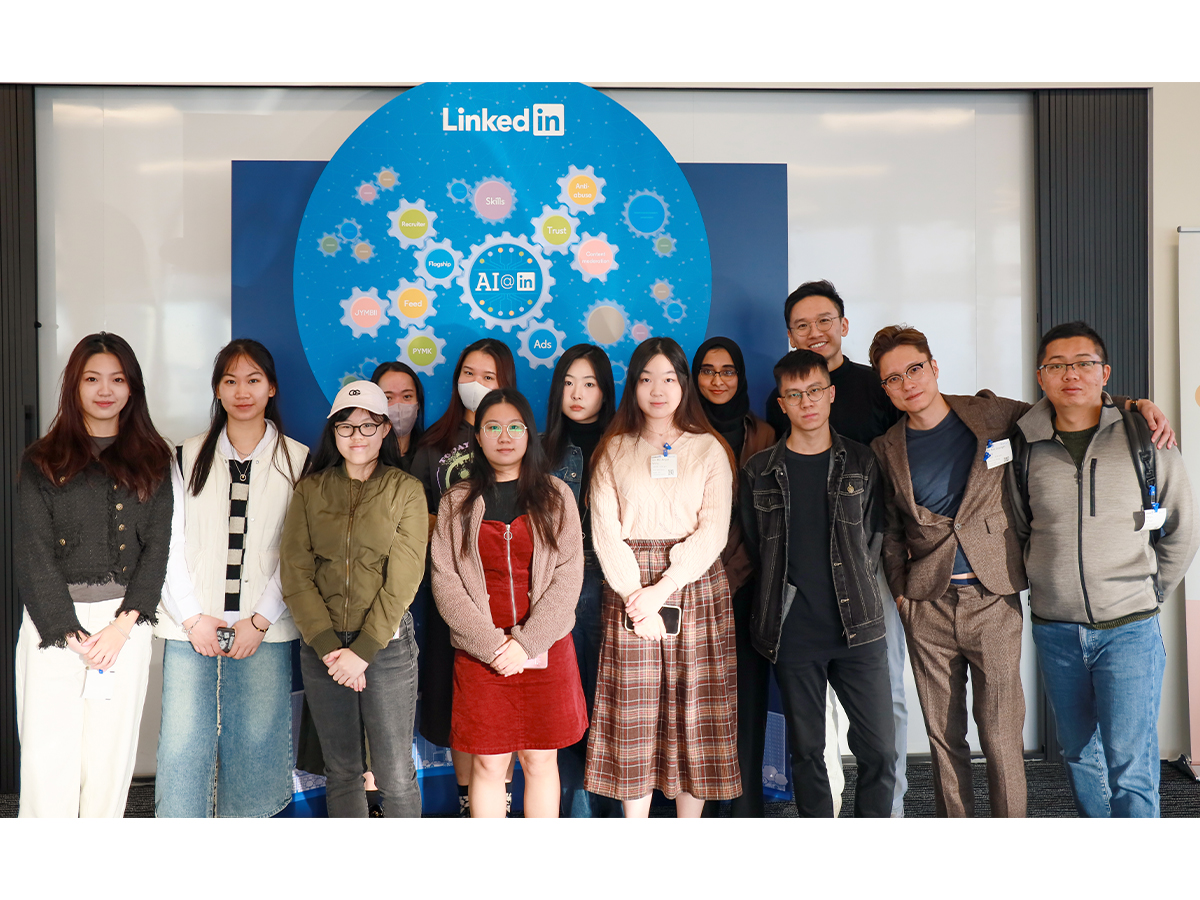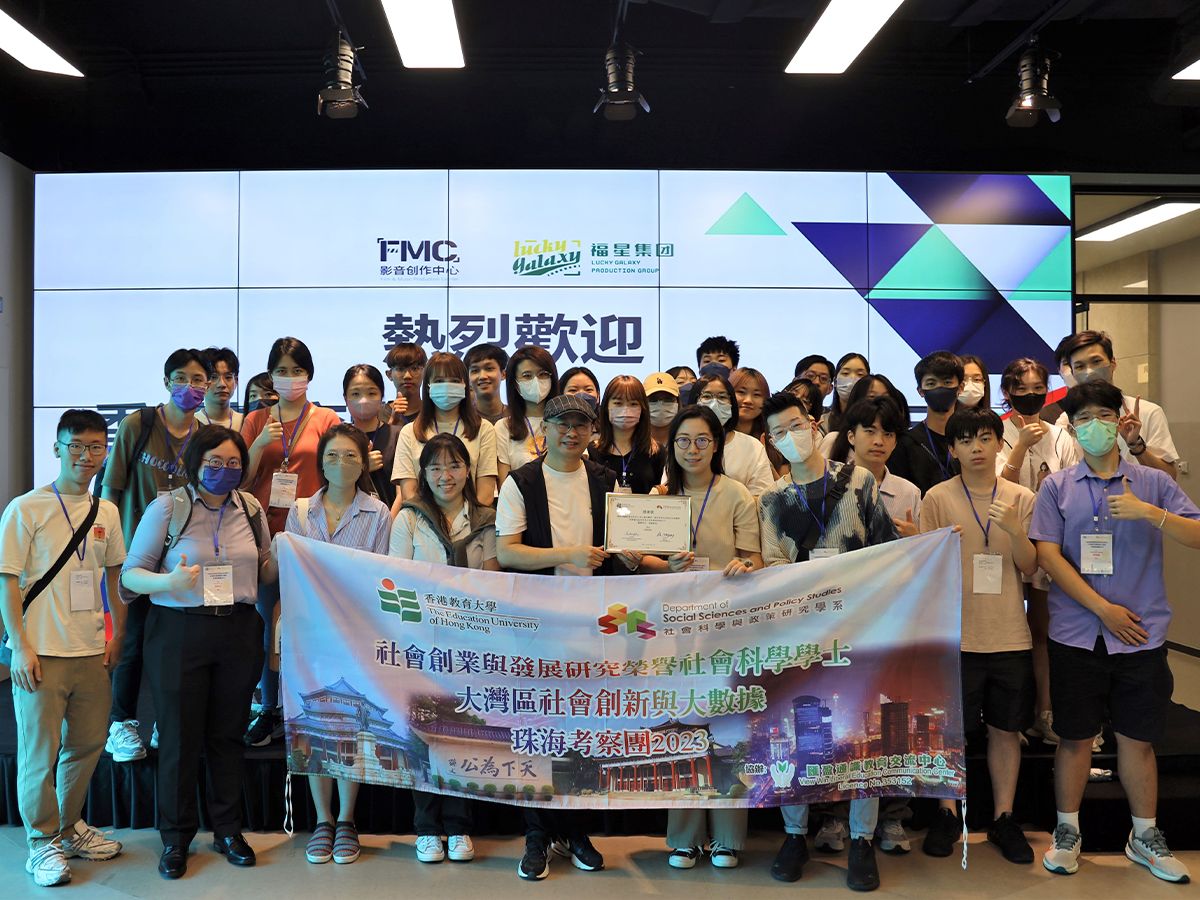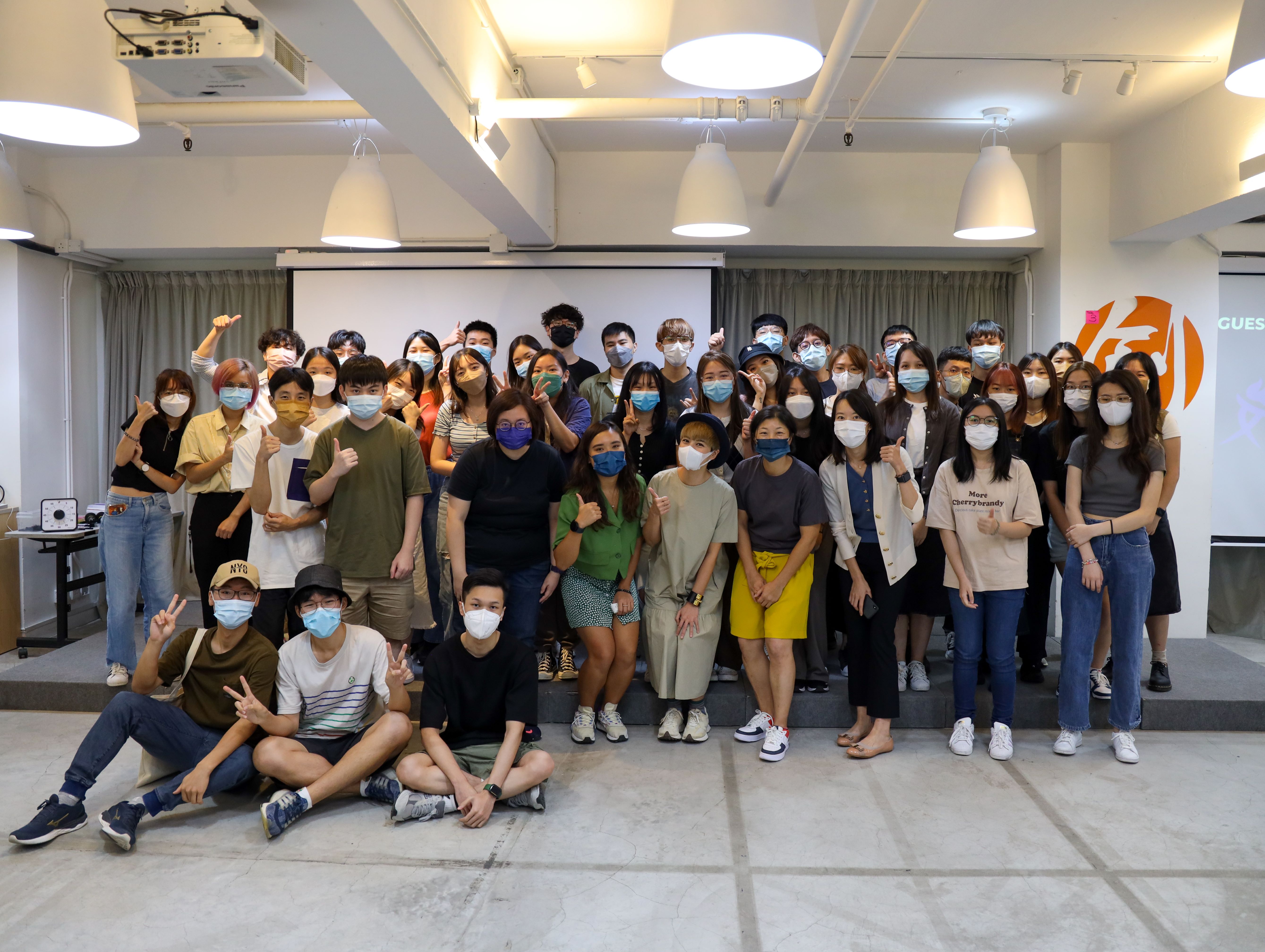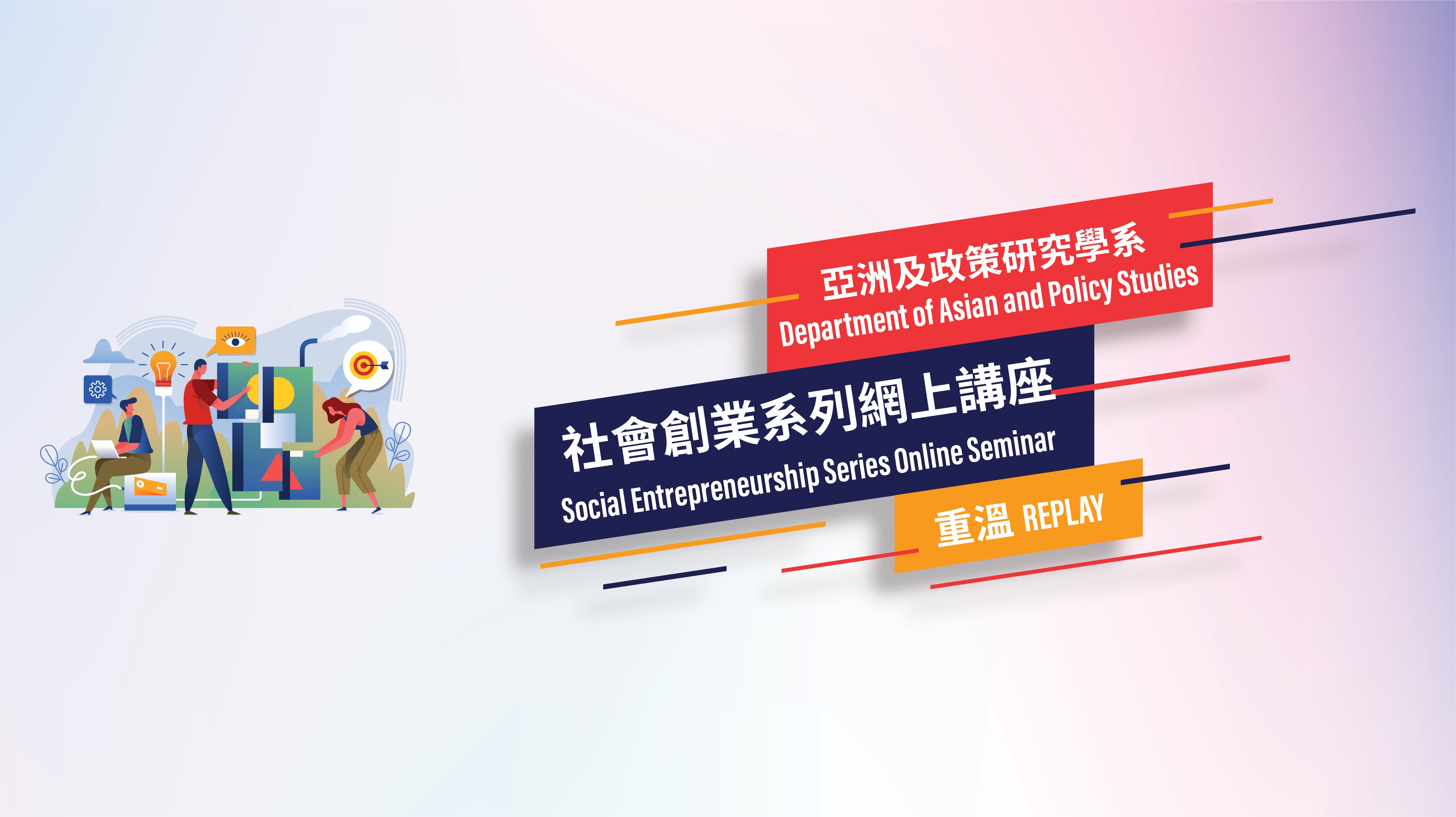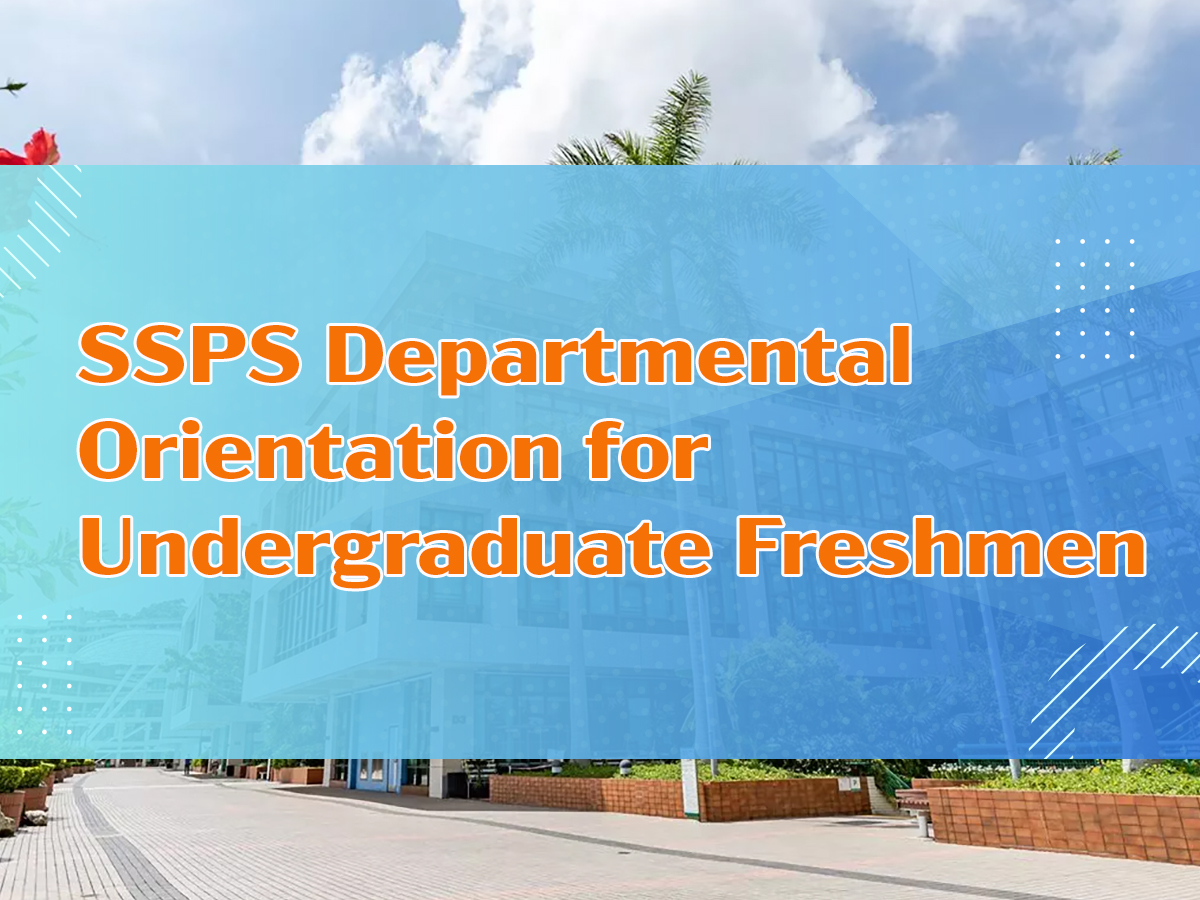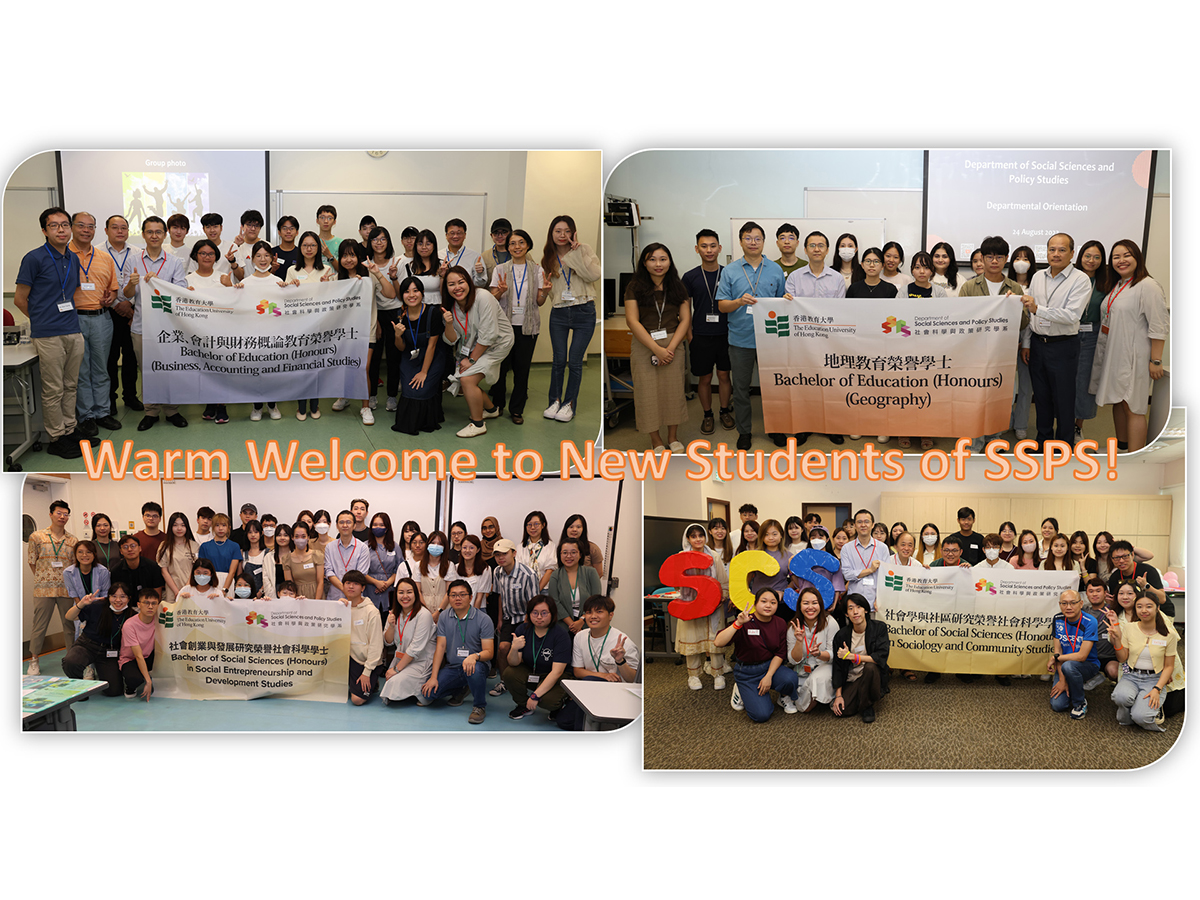Bachelor of Social Sciences (Honours) in Social Entrepreneurship and Development Studies

In recent years, the ecosystem of social business has speedily evolved, and some social entrepreneurs and successful social innovation projects have emerged. In a rapidly changing world, social entrepreneurs develop strategies by drawing on and merging inventive thought from both non-profit and business sectors, start businesses with the dual purpose of profit and social value, and address social problems, such as poverty and unemployment, unfair trade, etc., with innovation. This Programme with a focus on the developmental needs in the Greater Bay Area (GBA) and emerging economies in Asia, provides students with a holistic experience of social entrepreneurship, enhances students with academic and professional foundations, and helps students develop networks through internship and field visits with organisations in Hong Kong and other cities in the GBA, enables students’ understanding of the complex dynamics of social transitions in GBA and Asia, in order to equip students for their future careers.
Programme Aims
The programme prepares young people with the skills and knowledge to create high-impact social careers, with a focus on the developmental needs in the regions [such as Asia, and the Greater Bay Area (GBA)]. Specifically, it aims to:
- provide students with a holistic experience of social entrepreneurship, taking students from ambition stages all the way to developing pitches for investors;
- enable students to build support among stakeholders and manage and grow social ventures to scale and maximise impacts;
- enable students’ understanding of the complex dynamics of social transitions and comprehensive understanding of regional developments from a comparative perspective;
- provide students with the academic and professional foundation to become professionals in social enterprises and government / non-government organisations, corporations; and local / national / international associations and organisations, and provide a strong foundation for career advancement and future postgraduate studies.
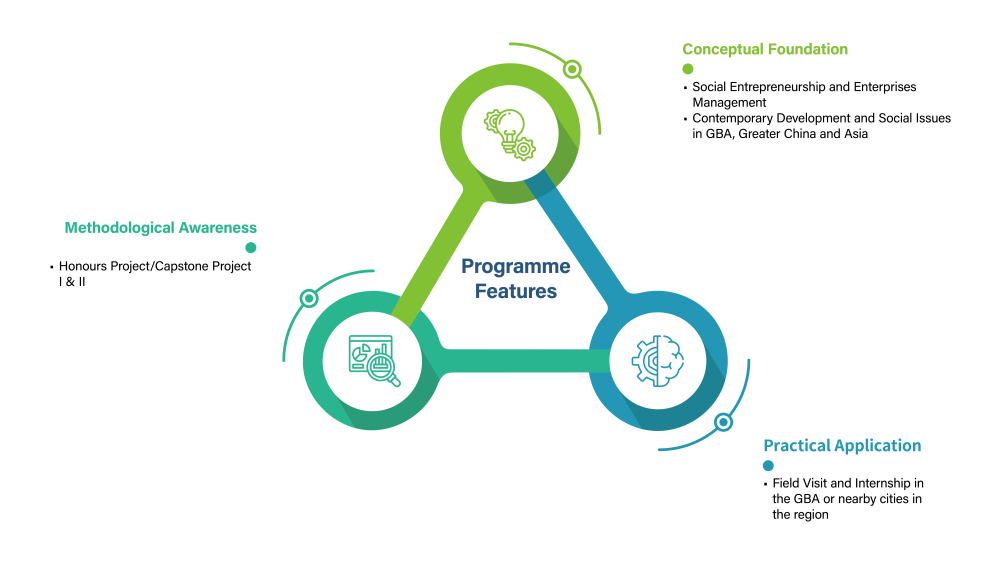

Through dedicated and practical training, the programme will prepare more young people who have the ambition to start a social venture, and grab the numerous funding opportunities that governments and businesses have offered. Graduates may also pursue an impactful career by joining existing social enterprises, government, socially responsible corporations, and NGOs as project or executive officers. In Hong Kong, social enterprises and non-governmental organisations have already provided approximately 80% of social services. These organisations often need to solicit resources from public or private sources, and communicate effectively with different stakeholders in society. Graduates will find ample employment opportunities.
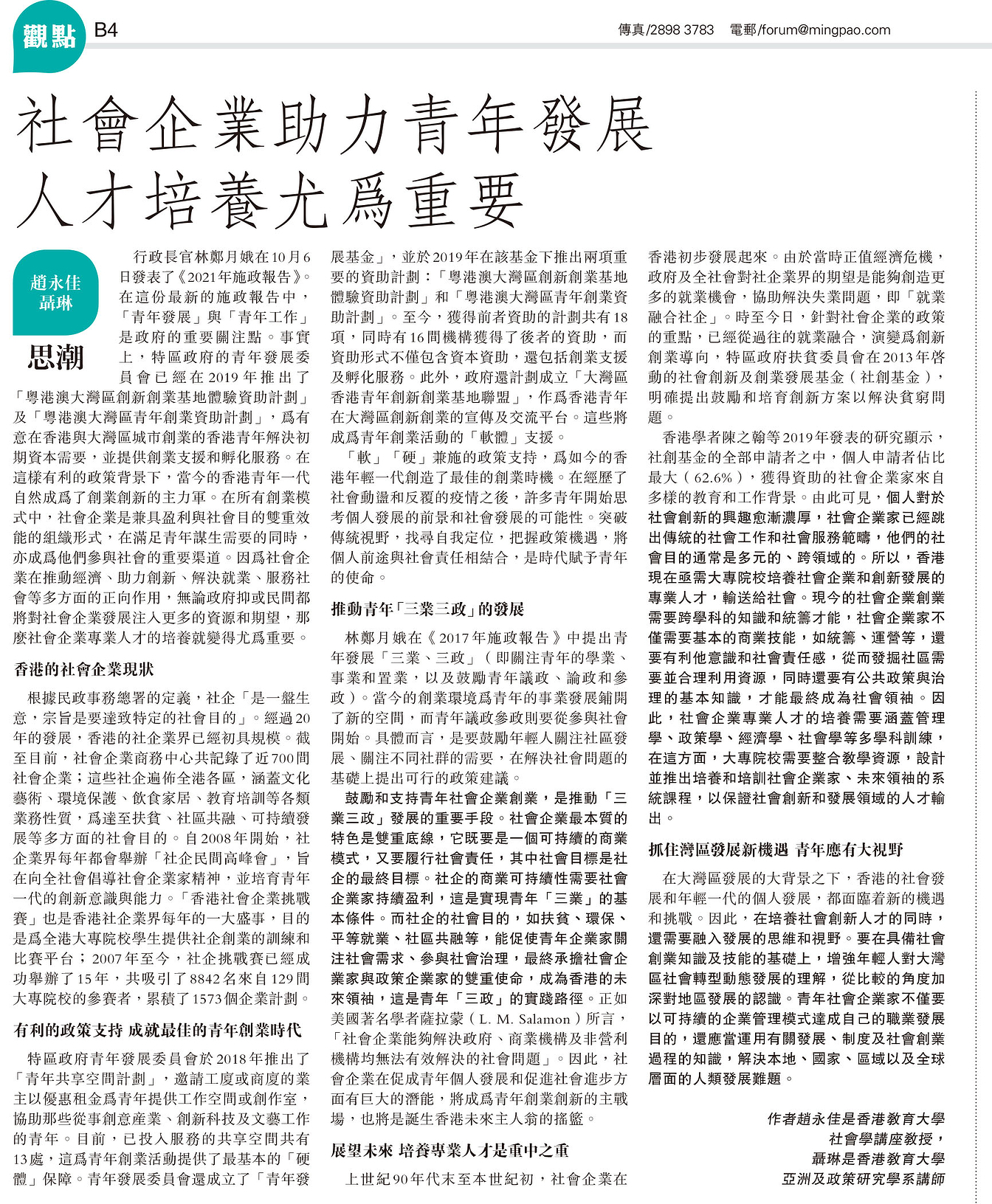
Programme Structure
| Domain | Components | Credit Points (cps) |
|---|---|---|
| Major | Major Core | 15 |
| Major Elective | 6 | |
| Internship | 6 | |
| Cross-Faculty Core Course (CFCC) | 3 | |
| Major Interdisciplinary Course (IC) | 3 | |
| Field Visit (Non-credit bearing) | 0 | |
| Final Year Project | Honours Project I: Research Methods and Proposal/ Capstone Project I: Research Methods and Proposal | 3 |
| Honours Project II: Research Report/ Capstone Project II: Project Output | 3 | |
| Minor / Electives | 15 | |
| General Education (GE) | 6 | |
| English Enhancement | 0 | |
| Total cps | 60 | |
Notes:
Classes will be held in Tai Po Campus and Tseung Kwan O Study Centre / North Point Study Centre / Sports Centre / Kowloon Tong Satellite Study Centre as decided by the University.
Students admitted into this programme are required to visit the Greater Bay Area (GBA) and/or other parts of Chinese Mainland. The programme may also require students to participate in other non-local learning experience for completion of the programme. While the visits are subsidised, students are required to contribute part of the estimated cost of the visits ("students’ contribution"), whereas any personal entertainment, meals expenses, travel document fee and personal insurance costs shall be at students’ own expense. The estimated cost of the visits and students’ contribution for students admitted to the coming cohort is yet to be available due to a variety of factors such as inflation of cost of the visits, trip duration, traveling expenses, the exchange rate, etc.
Major (33cps)
| Course Code | Course Title | Credit Points (cps) |
|---|---|---|
Major Core Course (15 cps) | ||
| PUA2013 | Managing and Organising Social Enterprises | 3 |
| PUA2014 | Organisational Budget Management | 3 |
| PUA3016 | Leadership in Social Innovation and Development | 3 |
| SSC2327 | Stakeholder and Customer Engagement | 3 |
| SSC4329 | Tool Kits for Social Entrepreneurship | 3 |
Major Elective Course (6 cps) (Choose two from below) | ||
| GCS4005 | Regional Cooperation in Greater China: Challenges and Issues | 3 |
| PUA3015 | Institutions and Development in the Greater Bay Area | 3 |
| SSC4328 | Economic Growth and Sustainable Livelihood in China | 3 |
Cross-Faculty Core Course (3 cps)* | ||
| CFB3008 (Component II) | Visits in Greater Bay Area | 1 |
Major Interdisciplinary Course (3 cps) | ||
| GCS4029 | Comparative Social Policy | 3 |
Internship (6 cps) & Field Visit (Non-credit bearing) | ||
| SSC4330 | Internship | 6 |
| SSC2331 | Field Visit | 0 |
* The Cross-Faculty Core Course (CFCC) will comprise 3 individual components with 1 credit point each and separately assessed with the aim to widen students' horizon and look beyond Hong Kong. In Component I, lectures with topics related to Basic Law / National Security will be arranged; in Component II, students will have the opportunities to undertake visits in Greater Bay Area; in Component III, a variety of themes which are linked to the University's development niche areas will be offered by Faculties.
Final Year Project (6cps)
| Course Code | Course Title | Credit Points (cps) |
|---|---|---|
| SSC4332/ SSC4333 | Honours Project I: Research Methods and Proposal / Capstone Project I: Research Methods and Proposal | 3 |
| SSC4334@/ SSC4335^ | Honours Project II: Research Report / Capstone Project II: Project Output | 3 |
@ SSC4332 is the pre-requisite for study SSC4334
^ SSC4333 is the pre-requisite for study SSC4335
The programme will mainly be conducted in English. Most of the Major courses will be taught in English. For some non-Major courses, Putonghua or Cantonese will be adopted as the medium of instruction when the language is considered to be the most effective for teaching.
Tuition Fees
Potential applicants are advised to note that the following tuition fees are provisional subject to adjustment.
| Local Students | HK$42,100 per annum |
| Non-local Students* | HK$145,000 per annum |
*Please refer to www.eduhk.hk/acadprog/nonlocal/ for the definition of non-local students.
Scholarship
A variety of scholarship may be available in any given year.
Entrance Requirement
Final year students or graduates of Associate Degree/Higher Diploma programmes or equivalent^ from recognized post-secondary institutions are welcome to apply.
In general, applicants should fulfill the general entrance requirements, language requirements and admission interview/subject test, if applicable. Please click here for details.
^ Normally, qualification which is of Level 4 or above under Qualifications Register (QR) of Hong Kong Council for Accreditation of Academic and Vocational Qualifications (HKCAAVQ). Equivalent qualifications will be considered on an individual basis.
Application Fee**
| Local Applicants: | HK$150 |
| Non-local Applicants: | HK$300^^ |
** The fee once paid is non-refundable and non-transferable unless the programme in question is cancelled by the University.
^^ Each non-local applicant can submit applications for a maximum of two programme choices by paying an application fee of HK$300. To facilitate the admission process, applicants are required to indicate their first programme preference via the online application system. The application fee (i.e. HK$300) will be charged for the 1st preference. Priority of consideration for admission will be given to the first programme choice.
How to Apply
You may apply via the University’s Online Application System. Please upload all relevant academic qualifications (including updated transcript, language exam reports, etc.) to the application system once available.
 |
Yeung Siu-hung BSocSc(SEDS) Graduate |
|---|---|
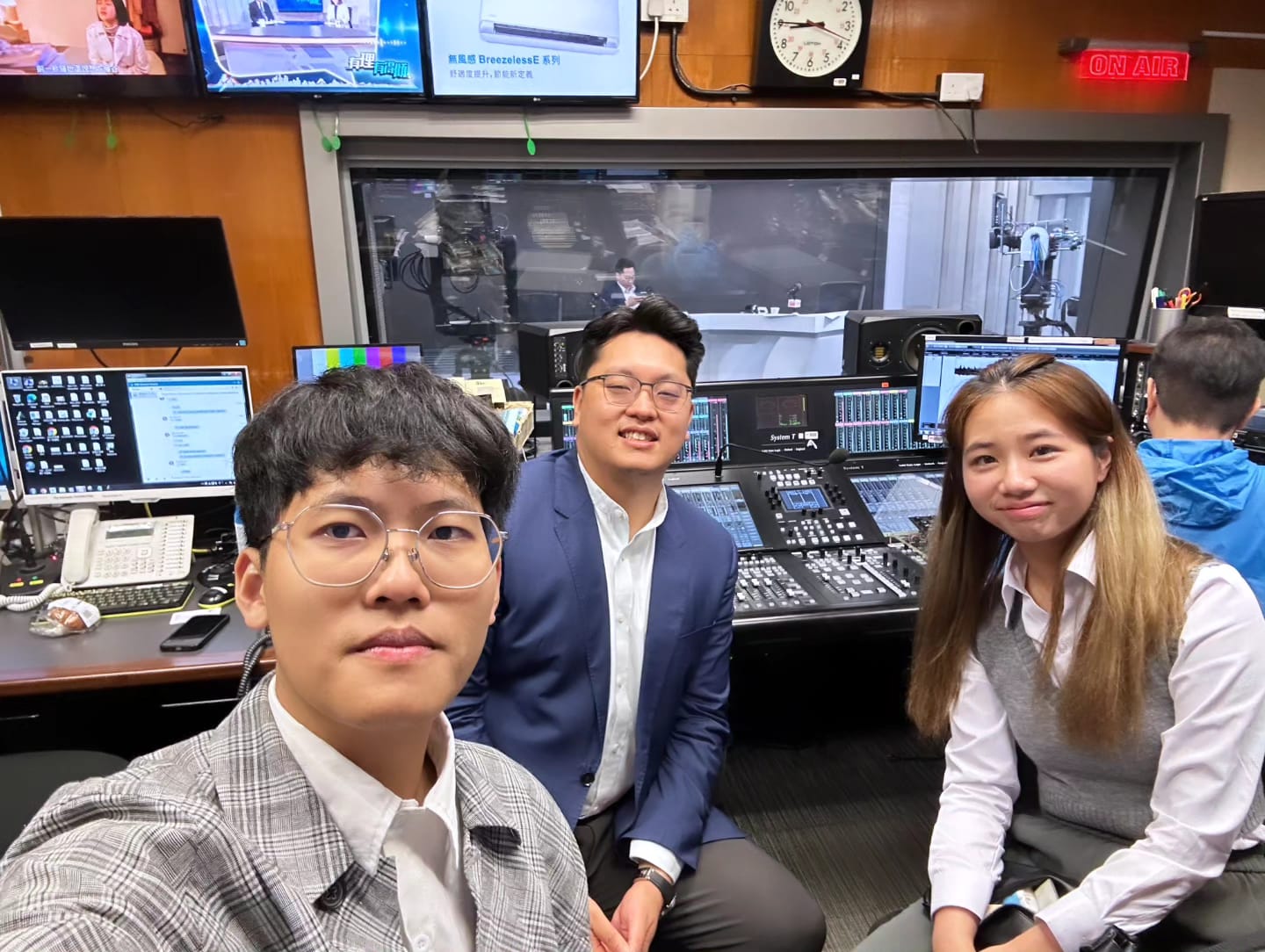 |
Yip Yiu Hang BSocSc(SEDS) Graduate |
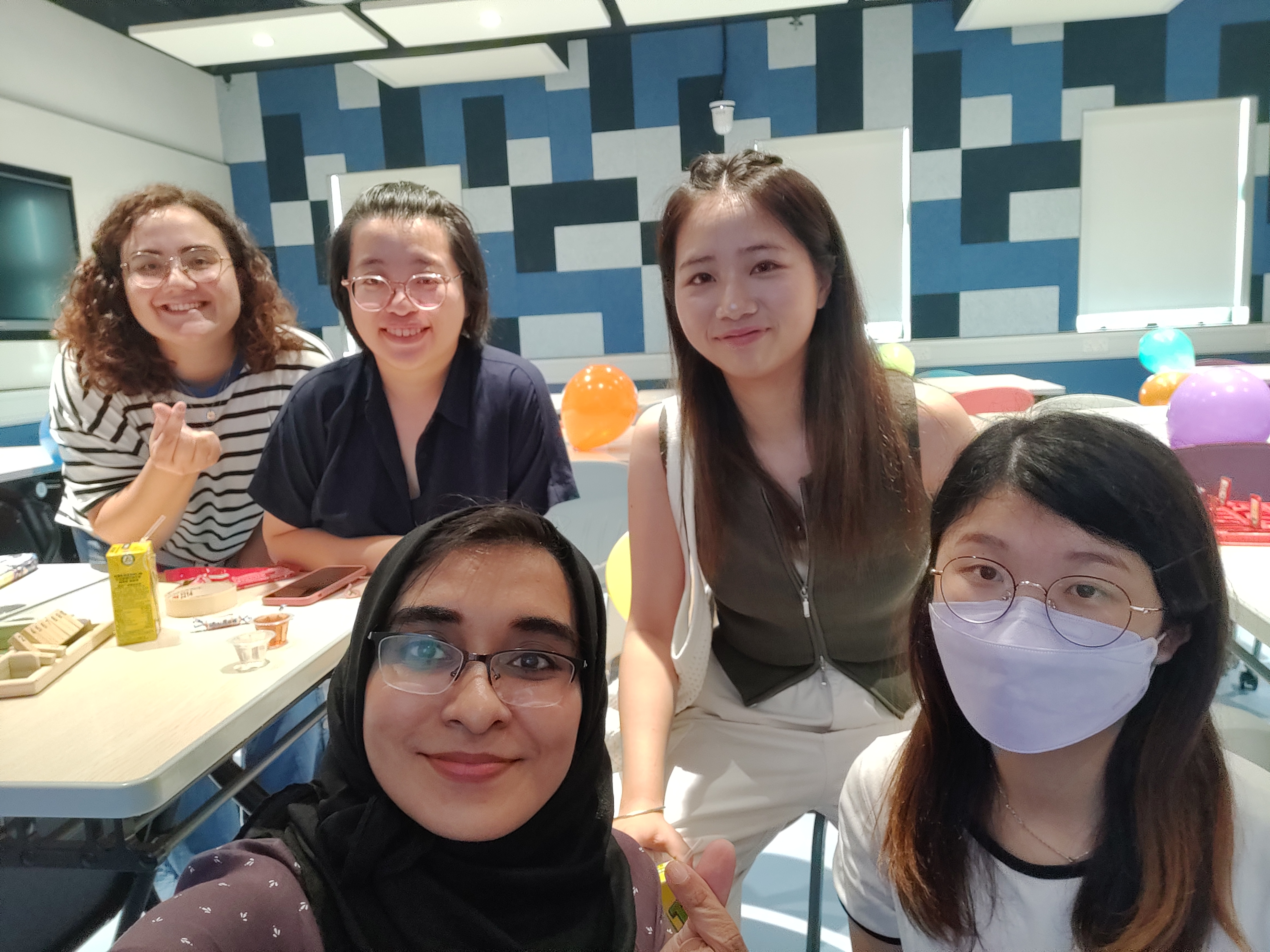 |
Ayeisha-Shafana BSocSc(SEDS) Graduate |
DISCLAIMER
Every effort has been made to ensure the accuracy of the information contained in this website. Changes to any aspects of the programmes may be made from time to time as due to change of circumstances and the University reserves the right to revise any information contained in this website as it deems fit without prior notice. The University accepts no liability for any loss or damage arising from any use or misuse of or reliance on any information contained in this website.
EdUHK, has not collaborated with any agency in Chinese Mainland or Hong Kong on admission, and does not encourage students to entrust their applications to any third-party agents and we always contact applicants directly on updates regarding the applications. You must complete and submit your own application via the EdUHK online admissions system and provide your own personal and contact details. Please refer to the official EdUHK channels, such as programme websites and the admissions system, for the required information to complete your application
Any aspect of the courses and course offerings (including, without limitation, the contents of the course and the manner in which the course is taught) may be subject to change at any time at the sole discretion of the University if necessary. Without limiting the generality of the University’s discretion to revise the courses and course offerings, it is envisaged that changes may be required due to factors including staffing, enrolment levels, logistical arrangements, curriculum changes, and other factors caused by change of circumstances. Tuition fees, once paid, are non-refundable.















